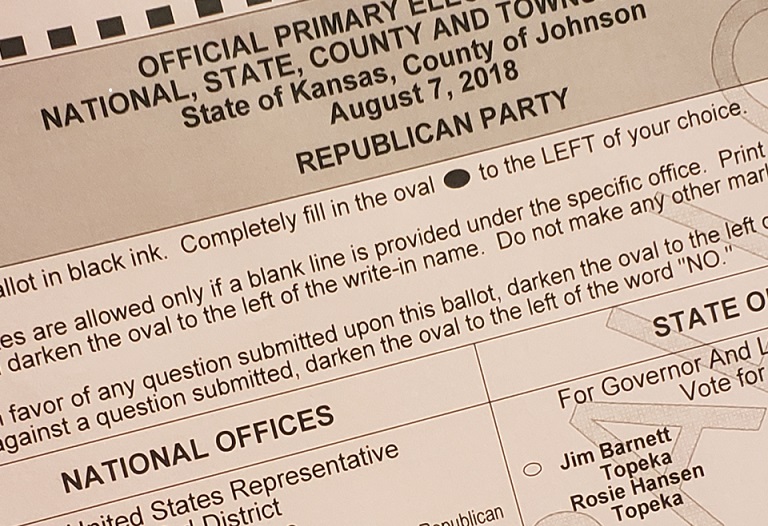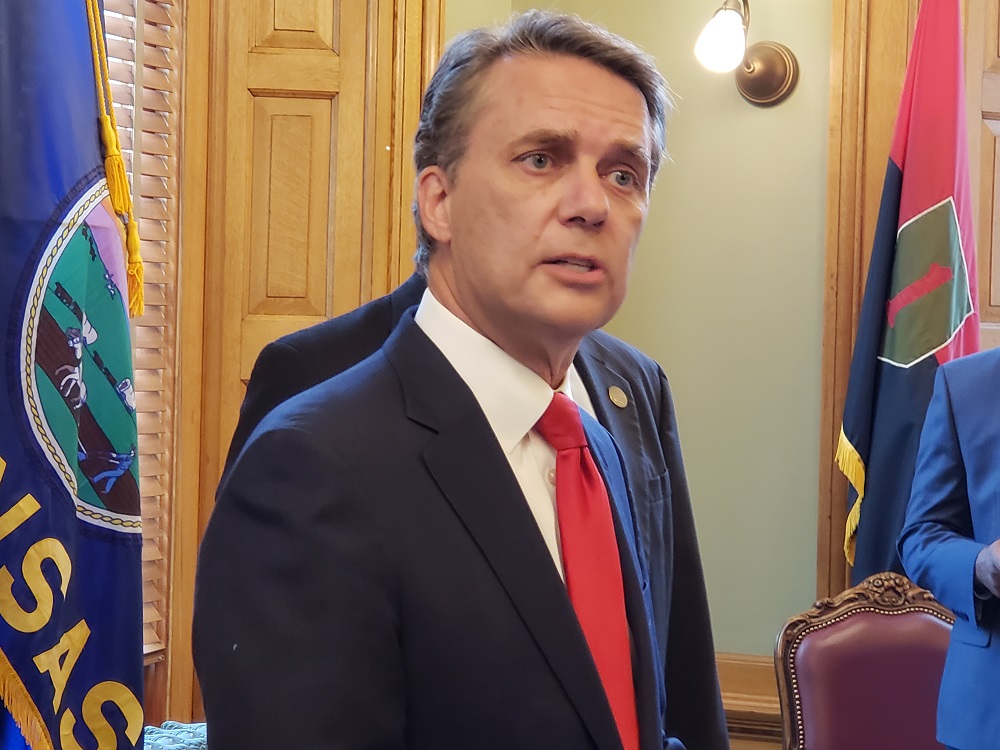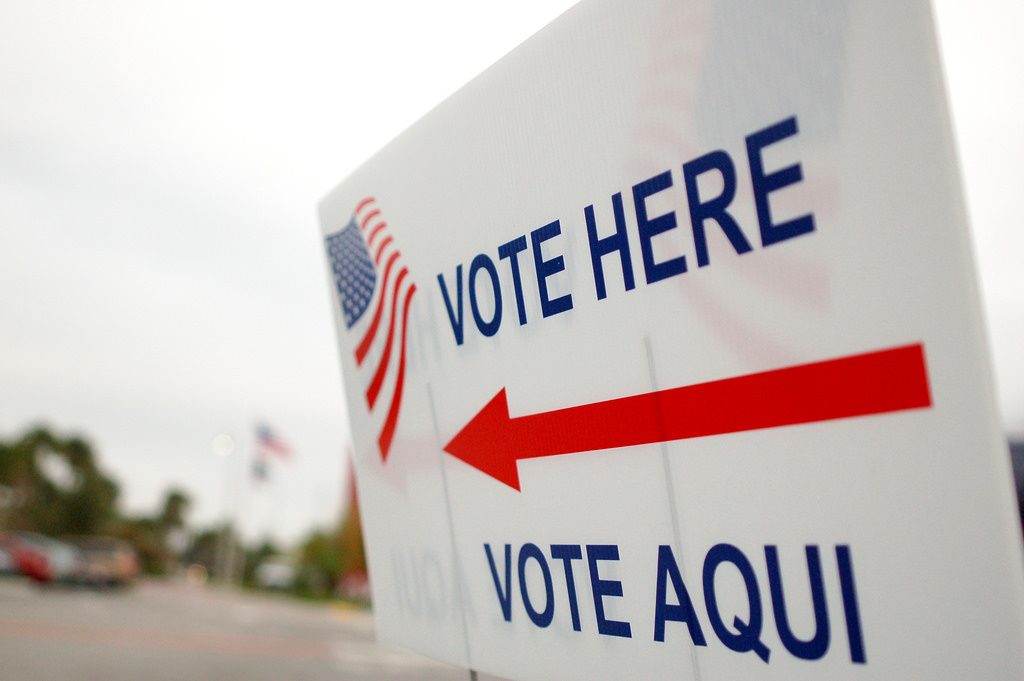Good morning everyone:
Well, it was a wild week. I think it’s fair to say we all expected some kind of surprise, but what kind of surprise, it was hard to know for sure. Kind of like looking for the prize at the bottom of a Cracker Jack box or Forrest Gump’s box of chocolates.
Now, we’ve got a Republican primary for governor that will likely last for another week – or more – where every day at every hour you will likely be checking your phone for the latest vote count.
It all begins Monday when 76 counties start tallying 9,000 provisional ballots across the state, most of which are concentrated in your most populated areas such as Sedgwick, Johnson, Douglas and Wyandotte counties and about 10 others.
About 3,600 of the provisional ballots, or 40 percent, were cast in Sedgwick and Johnson counties. It grows to about half when you add the provisional ballots from Wyandotte and Douglas counties.
Johnson and Sedgwick will count their provisional ballots on Monday, while Wyandotte, Douglas and Shawnee won’t count theirs until Thursday.
The last ballots won’t be counted until Aug. 20, which is different from the information the secretary of state’s office provided earlier this week when it said the provisional ballots had to be counted by Aug. 16.
The last ballots to be counted are scheduled for Aug. 20 in Anderson, Cherokee, Ellsworth, Russell, Wabaunsee and Montgomery counties. There were 223 provisional ballots cast in those counties.
So, let’s try to catch you up with the news about the governor’s race and other items that you may have missed throughout the week.
Vote count
A couple reader-friendly stories this morning from the Kansas City Star (via the Eagle) and the AP’s John Hanna about how the vote count will work this week. They offer a quick primer about what to expect.
Historic election for Colyer – win or lose
One way or another, Gov. Jeff Colyer might just make history when the GOP primary for governor is finally over.

He could become the gubernatorial incumbent with the narrowest primary loss in history – assuming that not much changes in the current vote margin.
Or he might also claim the narrowest primary victory in history for an incumbent.
It’s all in an analysis published last week by University of Virginia political expert Geoffrey Skelley.
In short, Skelley sums it up this way in Rasmussen Reports:
“If the final outcome is similar to the current vote, Colyer’s defeat would make history: His present margin of defeat stands as the narrowest ever for an incumbent governor in a primary.
“Conversely, if Colyer wins based on the counting of outstanding votes and/or a recount, he could claim the record for narrowest primary win among incumbent governors.”
Who is Eric Rucker?

The Associated Press offers the best coverage of Kris Kobach’s choice to oversee election duties in the secretary of state’s office while he recuses himself during the vote count in the GOP primary for governor.
Kobach said Assistant Secretary of State Eric Rucker would assume those duties even though the Colyer campaign was less than satisfied with the choice.
Kobach’s take-no-prisoners style
The AP’s intrepid John Hanna offers up this little piece about Kobach’s style in the governor’s race. As Kobach often says, he doesn’t back down, he doubles down.
Democrats excitedly watch election fight
The Wichita Eagle brings us this story about the advantages that the Democrats gain from the GOP wrestling over the ongoing vote count in the Republican primary for governor. It’s worth pointing out that in 2004, former fighter pilot Adam Taff decided not to seek a recount in a tight congressional primary against Kris Kobach to avoid the very divisiveness that could beset the GOP with this race.
Roberts talks Trump trade

U.S. Sen. Pat Roberts was in Garden City late last week talking about President Donald Trump’s trade policies and how they’re affecting crops nationwide.
He said he appreciated the president’s $12 billion aid package to compensate farmers for losses they suffer because of the tariffs. But he added, “We don’t want aid. We want trade.” Here’s a recap from the Garden City Telegram.
Will farmers recover from Trump trade?
Politico raises the prospect that China will never need to return to the United States to purchase agricultural products.
The Chinese vice agriculture minister says his country has plenty of suppliers to turn to for foodstuffs, possibly cutting the United States completely out of that country’s market for a long time.
He suggests that the president’s $12 billion aid package won’t be sufficient to offset the losses caused by the tariffs.
New hire at Kansas Electric Cooperatives
Kansas Electric Cooperatives has named Tara Mays as its new manager for government relations.

Her responsibilities include state and federal advocacy and promoting grassroots initiatives for the organization’s members.
Mays’ experience includes work as the legislative liaison for the Kansas Department of Transportation and government affairs director for the Kansas Turnpike Authority.
She also worked as executive director for Economic Lifelines, which advocates for transportation funding, and Kansas Operation Lifesaver, a statewide network of volunteers that works to improve railroad track safety awareness.
“Tara brings excellent statehouse contacts along with strong association management and communications experiences to our member service team,” said Bruce Graham, chief executive of Kansas Electric Cooperatives.
The KEC is the state service organization for 28 electric distribution cooperatives and three generations and transmission cooperatives.
States seeking election security grants
Earlier this year, Congress approved $380 million to help protect the country’s election systems from a cyberattack. The U.S. Election Assistance Commission recently announced that each of the 50 eligible states and five territories have requested a slice of the money appropriated by Congress.
Here’s the commission’s announcement, which also includes a link to how much each state is eligible to receive in the program. The National Conference of State Legislatures also provides this look at what states are doing about cybersecurity.
Traffic fatalities climbing
When the new statewide transportation task force met last week, there was one alarming trend that was reported: traffic deaths.
After bottoming out at 350 traffic deaths in 2013, the number of highway fatalities has steadily climbed during the last several years. There were 461 traffic fatalities in 2017, up about 32 percent in the last four years.
Through July 24 of this year, there were 232 fatals, down 10 percent from the same period last year but is still on pace for a 13 percent increase from 2013 – and we still haven’t hit busy travel periods such as Labor Day, Thanksgiving and Christmas.













